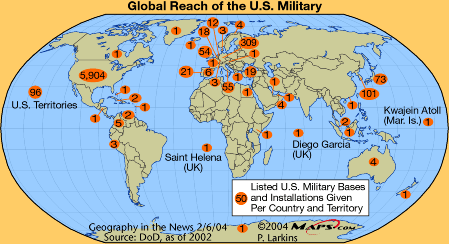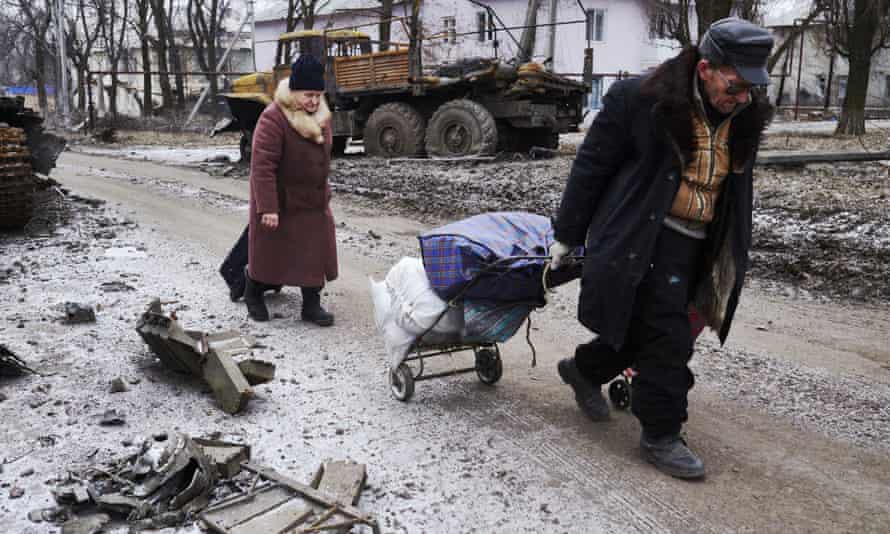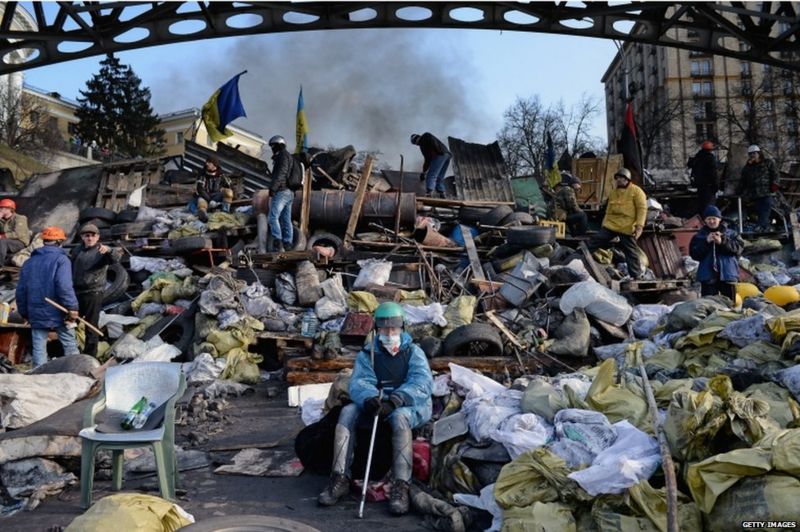
The Pentagon is the Elephant
In the Climate Activist Room|
Melissa Garriga and Tim Biondo / World BEYOND War
(September 7, 2023) — With nearly 10,000 people expected to take to the streets of New York City on September 17 for the March to End Fossil Fuels, the climate justice movement seems more organized than ever. But, there’s a big elephant in the room, and it has the Pentagon written all over it.
The US military is the world’s largest institutional oil consumer. It causes more greenhouse gas emissions than 140 nations combined and accounts for about one-third of America’s total fossil fuel consumption. The Department of Defense (DoD) also uses huge amounts of natural gas and coal, as well as nuclear power plants at its bases around the country.
How can we demand the US be part of a movement that aims to end the use of fossil fuels and protect our planet when their own institution is wreaking havoc without accountability? The answer: you can’t.
As long as we ignore the Pentagon’s role in perpetuating climate change, our fight to protect the planet is incomplete. We also risk undermining our own effectiveness by not taking into account how the nearly trillion dollar military budget takes away from people’s access to resources that not only affect their capacity to fight for climate justice but also to live under extreme economic inequality.
While United States officials want the consumer public to be responsible for their personal carbon footprint, such as making motorists switch to electric vehicles or banning incandescent light bulbs they are avoiding responsibility for the large carbon “bootprint” the military is leaving across the globe.
From burn pits in Iraq, or the use of depleted uranium and cluster munitions in Ukraine, to the ever-expanding list of domestic and oversea military bases — the United States military is not only destroying its own country but devastating indigenous communities and sovereign nations through extreme environmental degradation.

According to the Environmental Working Group, “more than 700 military installations are likely contaminated with the “forever chemicals” known as PFAS.” But the problem goes far beyond drinking water. In Japan, the indigenous Ryukyuan is pushing back against yet another military base being built on the island of Okinawa. The new base is a major threat to the fragile ecosystem the Ryukyuans work hard to maintain. The damage to their marine ecosystem of course coincides with the poisoning of their drinking water — a fight both Hawaii and Guam are all too familiar with.
All of these contributing factors of climate destruction are happening in “conflict free” zones,but what impact does the US military have on active warzones? Well, take a look at the Russian/Ukraine war — a war that the US is helping to sustain to the tune of over a hundred billion dollars.
CNN recently reported that “a total of 120 million metric tons of planet-heating pollution can be attributed to the first 12 months of the war.” They explained how those measures are “equivalent to the annual emissions of Belgium, or those produced by nearly 27 million gas-powered cars on the road for a year.”
The damage doesn’t end there. The war in Ukraine has compromised pipelines and methane leaks; attributed to dead dolphins and marine harm; caused deforestation, farmland destruction, and water contamination; as well as the increase in production of dirty energy like coal. It also carries the imminent threat of radiation leaks and nuclear catastrophe. The continuation of this war is the continuation of ecocide. We must do what we can to end it now and without further death and destruction.

The United States is not only fueling the current climate crisis but it is also funding it at our expense and peril. The Pentagon uses up 64% of our government’s discretionary spending (which includes things like education and healthcare). We are spending our money that could fund social programs into the continuation of climate disaster.
Ordinary Americans, especially Black, Brown and poor communities, are forced to pay for endless war and environmental degradation through higher taxes, fees and utility bills. Climate change is a threat to national security, with the potential to affect global stability and the ability of governments to provide essential services. Who remembers Vice President Kamala Harris ominous quote, “For years there were wars fought over oil; in a short time there will be wars fought over water.”
The Pentagon’s core mission is to prepare for potential attacks by human adversaries, but none of the United States’ “adversaries” — Russia, Iran, China and North Korea — are certain to attack the United States. Nor is a large standing military the only way to reduce the threats these alleged adversaries pose who all have much smaller militaries in comparison. “As the government tries to scare Americans over these hypothetical “threats,” they refuse to address the real danger communities across the world face every day due to climate change.”
The climate crisis is here now with real consequences. In the United States, climate change is already contributing to drought and wildfires in California, Hawaii, and Louisiana. Sea level rise threatens coastal communities and rising temperatures are likely to increase civil unrest and contribute to more job-related deaths.
We have to act now by pushing peace and cooperation around the globe. We must divert spending away from military base occupation and war and into climate crisis aversion. Or else.
We need a climate justice platform that calls for an end to wars abroad and at home. We need to permanently end the war on terror, which has cost trillions of dollars, killed millions of people and created an endless cycle of violence and instability around the world.
We need to stop spending billions on weapons systems designed to fight imaginary enemies. Instead we should use that money for domestic priorities like health care, education and infrastructure projects here at home.
We need to work side by side with all nations to address climate issues. This includes those we have deemed as enemies as well as the Global South — who are bearing the brunt of the climate crisis.
We need to make sure that our tax dollars are being spent on the things that matter most to us — and that means an end to endless war and environmental degradation. We need a Green New Deal, which redirects federal funds from military spending towards domestic priorities like health care, education and infrastructure projects.

When it comes to the fight for climate justice, the Pentagon is the elephant in the room. We can’t keep ignoring its enormous “bootprint.” It’s simple — to defend earth we must end war and we must end it now. Peace is no longer something that should be looked at as an utopian idea — it is a necessity. Our survival depends on it.
Melissa Garriga is the communications and media analysis manager for CODEPINK. She writes about the intersection of militarism and the human cost of war.
Tim Biondo is the digital communications manager for CODEPINK. They hold a bachelor’s degree in Peace Studies from The George Washington University.
Posted in accordance with Title 17, Section 107, US Code, for noncommercial, educational purposes.